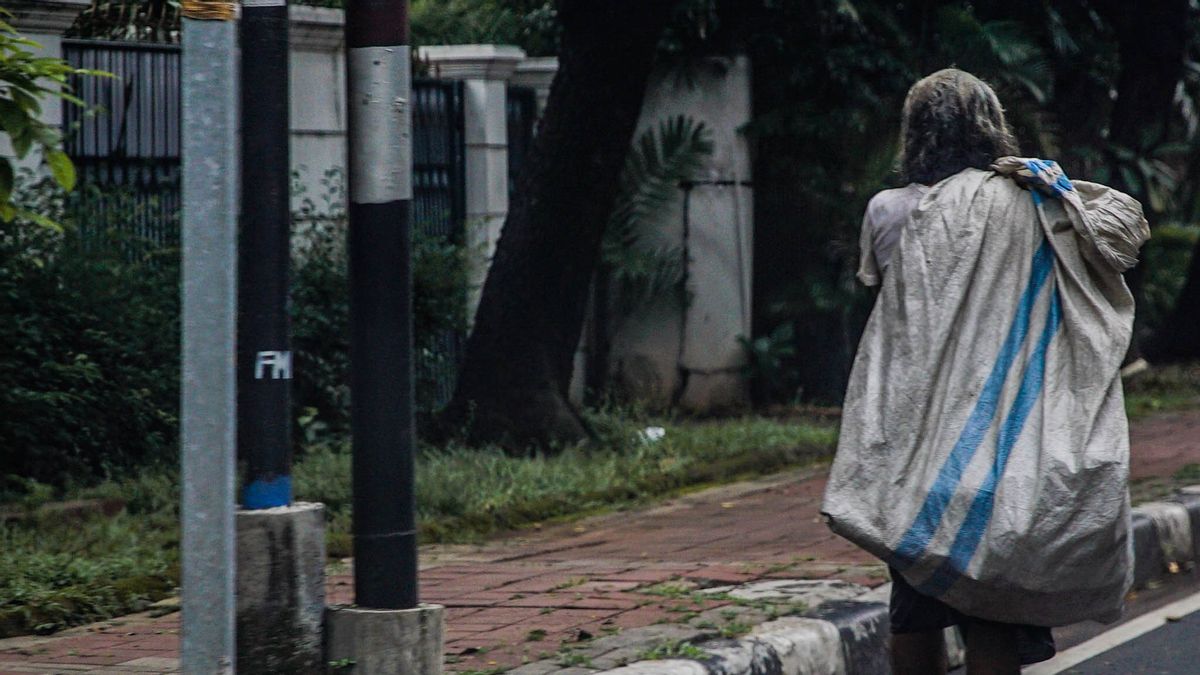JAKARTA - The intention of both the central and local governments to help residents affected by the COVID-19 pandemic is hampered by fundamental problems. Data. This country has poor data on its citizens who deserve to be given assistance so that it is right on target.
The attack of a new type of corona virus into this country has yet to show signs of ending. The government's struggle to prevent the spread of the virus is still long. Millions of people are no longer able to continue their work. The poverty rate also jumped far, up 12.37 percent or an increase of 8.5 million people.
The Integrated Social Welfare Data (DTKS) that is owned is still complicated. Even though this data is the main reference for the distribution of government social assistance. When the pandemic had not ended, the government was instead asked to swiftly tidy up the DTKS while distributing social assistance (bansos) quickly.
"The problem of data complexity is crucial in the field, this was acknowledged by the Minister. So it is clear that currently our biggest homework is how the regional apparatus down to the smallest structure should start tidying up the DTKS. The technique is to be regulated, as well as the distribution of social assistance is much better," said the Member. Commission VIII DPR RI Nurhasan Zaidi.
This problem arose when the DPR held a virtual meeting with the Minister of Social Affairs and the Minister for Villages, Disadvantaged Areas and Transmigration to discuss the Evaluation of Procedures for Distribution of Social Assistance and Direct Cash Assistance for Covid-19 Countermeasures, Wednesday, May 6.
Aid has indeed been distributed. But some are not on target or even become excessive in some people. Finally, the term 'tsunami social assistance' emerged from a number of ministries, private institutions, and local governments to the community, which overwhelmed the authorities.

When viewed from another point of view, this 'social assistance tsunami' is actually a blessing. It means that many people are helped by getting a lot of assistance. However, this situation has the potential to cause social conflict if it is not immediately addressed, especially the accuracy of the recipients of aid.
"The conditions are effective coordination between parties and accurate data, this is the key," asked the PKS politician.
On a different occasion, Member of Commission VIII DPR John Kenedy Azis assessed that social assistance from the Ministry of Social Affairs for the underprivileged community has not been properly distributed. Inevitably, valid data is needed so that the distribution of these needs is correct.
There are still many underprivileged families who do not receive assistance. In fact, said John, his house was far from proper, let alone survived in this condition. This problem arises because many underprivileged families are not registered in the data at the Ministry of Social Affairs.
"Maybe they are not registered in the Ministry of Social Affairs data, so (the data) cannot be found. This is the task for the Ministry of Social Affairs to distribute their aid appropriately, because out there there are still many underprivileged families who have not received assistance," said John.

The English, Chinese, Japanese, Arabic, and French versions are automatically generated by the AI. So there may still be inaccuracies in translating, please always see Indonesian as our main language. (system supported by DigitalSiber.id)













